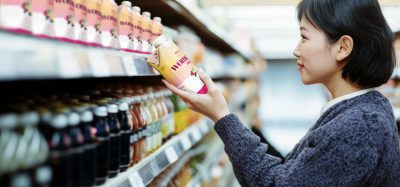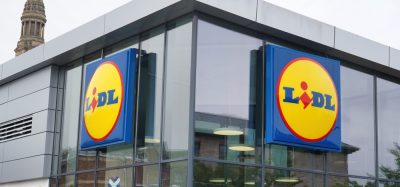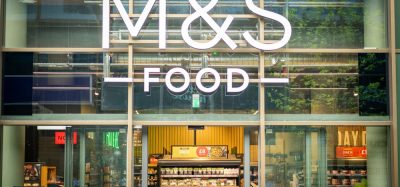Meet the new kid on the canned wine block
Posted: 18 December 2020 | Joshua Minchin (New Food) | No comments yet
Sipful founders, Darius and Emily Darwell, tell New Food’s Josh Minchin why they entered the canned cocktails market, and explain some of the difficulties start-ups can have when implementing sustainable policies.
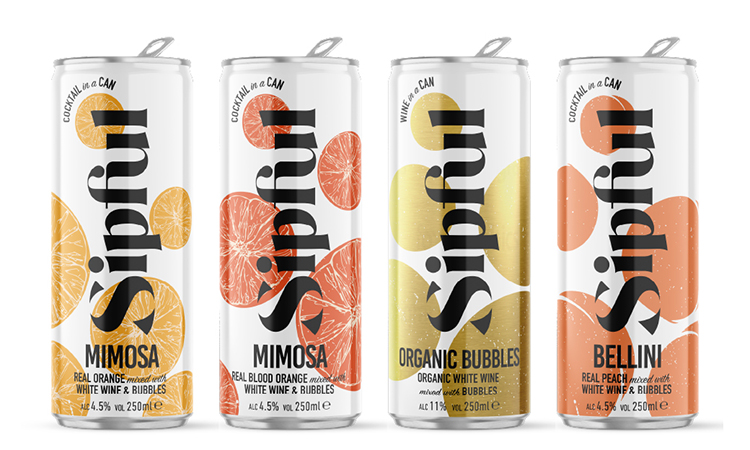

Credit: Sipful
After realising that a lot of the canned wine and cocktails on offer were not to their tastes, Darius and Emily Darwell decided to form Sipful. Here, the pair speak to New Food’s Junior Editor about the stigma of wine in a can, sustainability policies, and why it’s tough for a start-up to do the right thing.
Inspiration
The duo share a joint passionate for beverages and Darius had the benefit of 10 years’ professional experience under his belt, however, it was health which was the key driver for the Darwells’ business.
“You want to enjoy a drink without feeling like you’re just filling yourself with sugar. Also, we know that drinks with higher sugar content give you worse hangovers,” Emily said.
According to Darius, the core focus of their brand is “drinkability”. He mentioned the common lean towards synthetic sugars and extreme flavours in many beer brands. “You can’t have too many different flavours because your taste buds end up bamboozled! We don’t want our drinks to overwhelm consumers.”
Breaking the stigma around cans
According to the husband-and-wife-team, a stigma surrounds canned drinks, especially canned wine. Many consumers simply don’t hold it in as high esteem as its bottled counterparts, yet Darius thinks a lot of the hard work has been done for them by the craft beer industry.
With craft canned beer already available, he said that the consumer understood and accepted that premium beverages – including wine – can come in a can. “We’re not having to necessarily explain it to everybody, only a few people,” he explained.
Commenting on why the single serve nature of a can appealed to them so much, Emily said: “I always want a little glass of Prosecco before going out to party. But when you’re opening an entire bottle of Prosecco for just one tipple, it feels a little bit over the top.”
You get a lot of these ideals that you want to be hitting and sometimes you just get kicked back to your start-up place – ie, square one!
To ensure they make the most of their cans, Sipful has assigned Every Can Counts, an organisation which encourages the use of cans within the drinks industry, as its official recycling partner. Cans are also much more environmentally friendly than glass bottles, Darius added. The pair explained that the weight saved using cans instead of bottles can add up very quickly – 796 kilograms is saved per thousand litres of wine!
“It’s about getting these kinds of initiatives on board to educate us, educate our team, and then educate our strategy for moving forward” Darius said.
It’s not easy being green
Darius and Emily have centred Sipful around sustainability, with that issue at the core of every decision they make. However, they revealed that it isn’t always easy for small start-ups to make bold, green choices. The duo said they want to get to a point where they’re using only organic fruit, for example, but they have a way to go before they can.
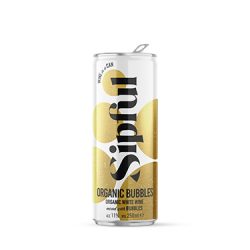

Darius and Emily plan to roll out the new printed cans across the entire Sipful range
“At the moment, we buy maybe a thousand litres of, or a thousand kilograms of, fruit pulp or fruit concentrate. We need to get to 10 metric tons of fruit before we can go organic. We have to get those kinds of order volumes up, in order to start making some of the bigger, more environmental steps.”
Order volumes were not the only barrier Sipful faced. In a bid to make their products as ‘recyclable’ as possible, the pair intended to use paper labels on their cans – but this did not go to plan. “They just looked absolutely awful,” admitted Emily. “I was looking at it in my fridge thinking, ‘I wouldn’t drink that’.” They switched to plastic labels (which are still recyclable) and have now invested in printed cans for their Organic Bubbles line at a considerable upfront cost.
The ex-brewer expressed his frustration at the difficulties faced by smaller companies when it comes to being more sustainable. “I just feel we get backed into a corner,” he said. “You get a lot of these ideals that you want to be hitting and sometimes you just get kicked back to your start-up place – ie, square one!”
Leading the charge
The question of whose responsibility it is to promote sustainability in the food industry has been asked time and time again. Should consumers vote with their cash, or is it up to the industry to present shoppers with genuinely sustainable alternatives? Darius and Emily believe in a happy compromise. Despite not always being able to hit every sustainability target, they think that smaller brands like Sipful have a unique opportunity.
As Darius pointed out, multinationals that wish to turn organic, for example, would probably have to raise their prices, which Emily agreed would probably lose customers. Darius sees a niche for Sipful in this regard however: “I think that’s where disruptive brands, like ourselves, can lead the way in pushing consumer practice or consumer awareness.
“We fully believe government should be legislating bigger companies, in order to be able to meet all these goals and aims that they keep on introducing and missing. But government doesn’t work fast enough. So, it’s down to small and innovative businesses to push that agenda, then consumers can go with that. Then that’s when change happens.”
By this, Darius means consumers then have a choice to buy products which promote their sustainability ideals.
The formation of Sipful and the core principles that guide its two founders showcase the very best of start-up culture within the food industry. Darius and Emily saw a gap in the market and are genuinely trying to create a sustainable product to fill it. Nevertheless, their frustrations around the ease of employing environmentally friendly policies as a start-up are interesting; is it up to smaller brands to disrupt the industry in any way they can, or should regulators step in to make life easier for start-ups trying to do the right thing?
Biography


The pair were inspired by their experiences of hiking, camping and wild swimming in the Lakes and Yorkshire Dales. After searching in vain for a ready-to-drink wine or cocktail which avoided the artificial, overly sweetened taste, Emily’s idea and Darius’ experience as a professional brewer saw the Sipful journey begin.
Related topics
Beverages, Labelling, New product development (NPD), Packaging & Labelling, Product Development, retail, Sustainability




